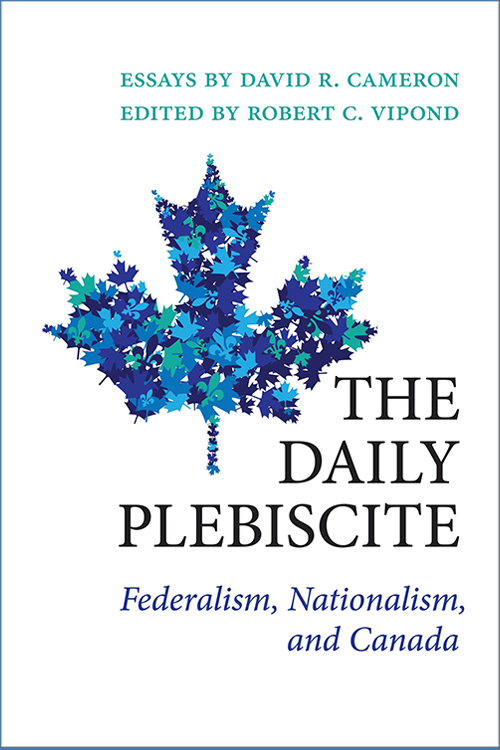For thirty years — from the mid-1960s to the mid-1990s — Canada was in a constant state of political turmoil. With each new constitutional conference, referendum and bitterly-fought election, the separation of Quebec seemed an ever more likely possibility.
But Quebec never did separate, and the choppy waters of late 20th-century Canada are now much more placid. “For students coming through university now, this is all part of the distant past,” says David Cameron. “They might as well be studying the origins of Confederation or the Depression.”
Still, the distinguished political scientist believes future generations would do well to remember the political lessons of that turbulent time, one in which he occupied a front row seat.
Currently special advisor to the president of U of T, Cameron served as dean of the Faculty of Arts & Science from 2013-2019. His academic and administrative work has been complemented by a long career in public service, starting in the 1970s. A decade after, he was appointed deputy minister of intergovernmental affairs for the government of Ontario; later appointments included Ontario representative to the government of Quebec, and special advisor to the premier on constitutional reform.

Written over the past four decades, Cameron’s essays on this crisis-riven epoch have now been gathered together in a thought-provoking new book entitled The Daily Plebiscite: Federalism, Nationalism and Canada. Edited by Robert Vipond, professor in the Department of Political Science, the essays offer a skillful analysis of the period and a bracing reminder of the elements that keep Canada together to this day.
Cameron says the title comes from a quote by French scholar, Ernest Renan (1823–1892). “I was struck by his definition of a nation as ‘un plébiscite de tous les jours.’ What he meant was that every member of a nation has a sense of responsibility; they need to be sustaining that community relationship every day, or not if they don’t believe in it anymore.”
Through those difficult thirty years, Cameron believes Canada exemplified this philosophy. When the country was tasked with preventing an irreparable tear in its national fabric, leaders demonstrated their ability to resolve conflicts peacefully and in a spirit of consultation.
He writes at length about the two most prominent Canadian politicians of the period: René Lévesque and Pierre Trudeau. Despite their charismatic, fiery personae, Cameron says both were also highly skilled diplomats. The result of this diplomacy is that, although a series of first ministers’ conferences failed to secure Quebec’s signature on the constitution, it remains a province to this day.
Our instinct to find ways of accommodating the forces within society rather than confronting them is still very much the Canadian way,” Cameron says. Through the years we’ve had many historical divisions: but we’ve also learned the merits of really listening to people.
“It was clear that Lévesque was trying to seek his ends politically, constitutionally, and not through violence,” says Cameron. “On the other side you had Trudeau — who, although a virulent opponent, never took the course of saying Lévesque was a traitor. He always saw the question as a political one.”
When compared to the experience of other countries under similar strain, the Canadian experience is significant. “Look at Spain,” says Cameron. “The Catalan referendum was declared illegal, and its leaders pursued and brought to justice. That’s a very different kind of approach. So it matters to Canadians that we managed a very acute moment of pressure in our society the way we did. It wasn’t always pretty or elegant, but we ultimately chose to be together.”
Today our central concern is Indigenous rights, along with our collective awareness that the country is profoundly multicultural and no longer the domain of “two founding peoples.” “No child today grows up thinking this is a British country,” says Cameron. “That idea is gone. And it’s right that it’s gone.”
And yet leaders in the 21st century can still learn much from the events of the 20th . “Our instinct to find ways of accommodating the forces within society rather than confronting them is still very much the Canadian way,” Cameron says. “Through the years we’ve had many historical divisions: but we’ve also learned the merits of really listening to people.”

